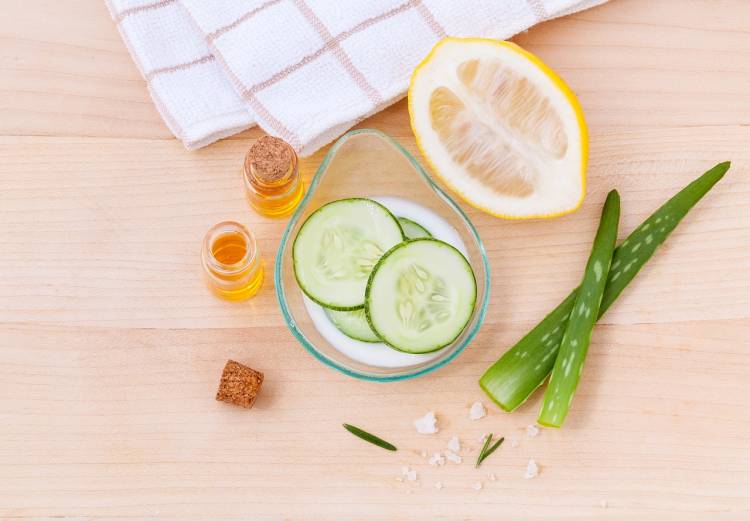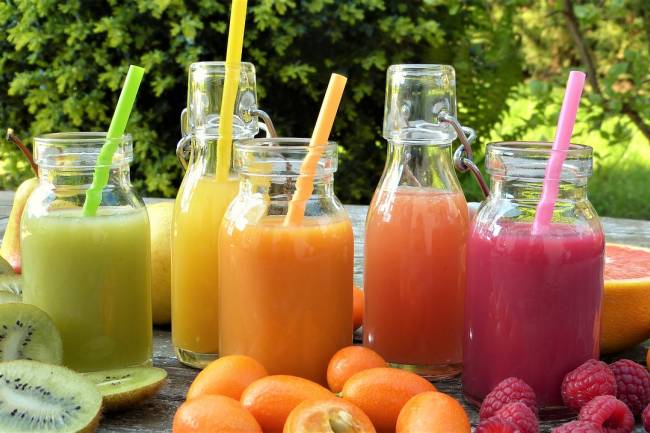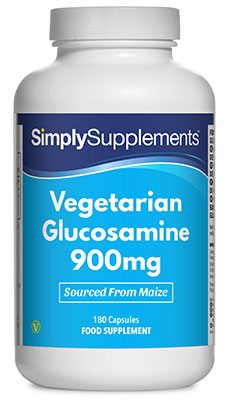Which Vitamins are Good for Skin?


The skin has many functions, including regulating temperature and protecting the body from environmental stressors. However, from time to time, certain factors can threaten the delicate condition of the skin. There are estimated to be over eight million people living with skin conditions in the UK alone, ranging from acne and rosacea to eczema and dermatitis. Vitamins play an important role in maintaining healthy skin and protecting against free radicals. Here we look at the vitamins your skin simply can’t live without.
Factors Affecting the Skin
Both internal and external factors can affect the health of the skin. Free radicals are perhaps the biggest threat to healthy, youthful skin. They are a natural by-product of several body processes including breathing and moving, so the body produces antioxidants to counteract them and prevent any damage being caused. However, free radicals can accumulate in excess if the body is exposed to the following internal and environmental factors:
Internal Factors
- Genetics: Certain inherited factors can determine what kind of skin you have, including biological skin ageing and any predisposition to skin diseases such as psoriasis.
- Hormones: Fluctuating hormone levels can cause dryness, hyperpigmentation, and acne.
- Age: Ageing skin becomes more fragile as it loses its tone, strength and elasticity.
External Factors
- UV Radiation: The sun’s rays trigger the production of free radicals that damage skin cells and are the main cause of premature ageing.
- Extreme Temperatures: The skin reacts to different weather conditions; the cold causes blood vessels in the skin to contract to prevent the loss of heat, while heat causes the skin to produce sweat to stay cool. Quickly changing from one environment to another can damage the skin's protective outer layer.
- Aggressive Products: Harsh chemicals found in some cosmetics, skin care and cleaning products affect the pH of the skin and damage the outermost protective layer.
- Pollution: Polluted air breaks down the skin's natural protection system, clogs pores and increases bacteria on the skin.
- Poor Diet: Unhealthy and restrictive diets can cause dehydrated skin, malnutrition, and hair loss.
- Stress: Excess stress triggers the release of stress hormones and increases the production of oil in the sebaceous glands.
- Smoking: Nicotine constricts small blood vessels and reduces the flow of oxygen to the epidermis. As a result, it accelerates the ageing process, causing the skin to age prematurely.
Vitamins That Support the Skin
Vitamin B
The eight B vitamins are important for healthy skin because they play a crucial role in cell reproduction; repairing broken skin cells and tissues, as well as forming and strengthening new skin cells. Skin cells regenerate approximately every 27 days, so a regular intake of B vitamins is important for the constant production of healthy new cells. B vitamins also play a role in eliminating free radicals from the body, which are a leading cause of premature ageing.
Niacin (B3) improves moisture retention in the uppermost layer of the skin and is often used to treat and heal skin conditions such as rosacea, acne, eczema, dermatitis, redness, sun damage and hyperpigmentation. It helps to strengthen the skin's outer barrier, which means that it is more efficient at keeping moisture in and irritants out, and is often included in lotions, creams and serums. Pantothenic acid (B5) helps the skin to break down oils and promotes faster wound healing. It is sometimes taken to minimise acne.
A deficiency in any B vitamin can cause dry skin, acne, dermatitis, dull complexion, or cracks on the mouth and lips. Ensure your diet is packed with foods rich in B vitamins such as leafy green vegetables, eggs, lean meats and whole grains.
As all of the B vitamins (apart from biotin) are water-soluble, meaning the body has no capacity to store them, they must be ingested every day for optimal health. For many, this is not practical, so a vitamin B complex supplement could prove to be a practical way to help promote softer and smoother skin, whilst reducing dryness and flakiness, alongside the plethora of other health benefits this family of vitamins is needed for.
Vitamin C
Vitamin C is one of the most powerful antioxidants available. This essential vitamin contributes to normal collagen formation and the healthy function of the skin. Collagen is vital for the skin to maintain firmness and elasticity, but the amount of collagen in the skin tends to decline with age or exposure to environmental factors such as sunlight, smoking and pollution.
Using vitamin C can boost collagen production and improve the skin's natural healing process; reducing inflammation and irritation. It also shields the skin from harmful free radicals, helps to maintain healthy blood vessels close to the surface of the skin, and protects against sun damage.
A rich supply of vitamin C is needed in the diet every day, as like the B vitamins, it cannot be stored. Good sources of vitamin C include citrus fruits, bell peppers, berries, broccoli and kale. If you don’t have an intake of these foods daily, then a vitamin C supplement may be beneficial to your health.
Vitamin D
Vitamin D plays an important role in skin cell development and repair thanks to its role in the production of a compound called cathelicidin, which some people are unable to produce. In its active form, calcitriol, it acts more like a hormone than a vitamin.
Low levels of vitamin D may result in the outer layer of the skin becoming thinner and more fragile. People with low vitamin D levels are more likely to have acne and eczema. They may also be at greater risk of skin infections as the immune system and the skin's barrier doesn't work properly. Vitamin D helps to increase antimicrobial proteins in the skin that destroy invading germs and viruses, and may help to manage acne and eczema symptoms.
The skin has the ability to synthesise around 10,000iu of vitamin D from twenty minutes of direct sun exposure during the summer months, though this may be considerably less for dark skinned individuals and older adults. However, sun exposure also triggers the production of free radicals, so too much accelerates ageing and causes fine lines and wrinkles.
Unfortunately, during the autumn and winter months the UK does not get adequate sunlight exposure, meaning we cannot synthesise sufficient vitamin D. This issue is compounded due to there being a limited range of foods rich in vitamin D. Fish, egg yolks and fortified products are all great examples of foods containing vitamin D, though a large amount of these foods must be eaten to achieve the NRV.
As a result of this, the government now recommends that everyone supplements with vitamin D through the autumn and winter months. Vitamin D supplementation has the potential to boost the health of millions, as it is currently the most common micronutrient deficiency in the developed world.
Vitamin E
Vitamin E is a powerful antioxidant that protects the skin against environmental toxins and UV radiation and offers excellent moisturising benefits. It works by protecting cells from the oxidative stress caused by free radicals and preventing water loss so that the skin retains moisture, and therefore may help to reduce the signs of premature ageing.
Vitamin E may also help to slow the production of melanin, which is the skin pigment responsible for the appearance of dark spots, often referred to as age spots. It is also used to lighten scars and repair scar tissue deep in the skin. Its antioxidant benefits may also offer some relief from sunburn by neutralising the free radicals created by UV radiation and soothing the skin.
Vitamin E is a popular anti-ageing ingredient and is often found in creams and lotions. It is oil-soluble and is, therefore, heavier and penetrates more deeply than water-soluble vitamins. This makes it an excellent choice for those with dry or damaged skin. If you have oily or acne-prone skin, you may find vitamin E creams too heavy.
Lifestyle Tips to Protect Your Skin
Simple lifestyle changes can help you to avoid excessive exposure to free radicals and oxidative damage:
- Eat Your Five a Day: Ensure your diet contains at least 3 to 5 portions of vegetables and 2 to 3 portions of fruit on a daily basis for a continued supply of skin-boosting vitamins and antioxidants.
- Take a Supplement: A high-quality multivitamin and mineral supplement can also help to improve the condition and appearance of the skin.
- Stay Hydrated: Adequate water consumption is also important so try to drink at least eight small glasses of water each day.
- Moisturise Regularly: Moisturising on a daily basis can help to strengthen the skin protective outer barrier. If you have spot-prone skin, opt for an oil-free moisturiser to avoid clogging up pores.
- Exercise Regularly: Exercise improves circulation and the transportation of nutrients to the skin. Sweating also helps to remove bacteria from the skin.
- Be Careful in the Sun: Take care when out in the sun. Fifteen minutes of sun exposure should be sufficient to soak up valuable vitamin D. After this, cover up or apply sunscreen.
- Stop Smoking: Nicotine damages the tiny blood vessels just under the skin's surface, causing the skin to appear red and blotchy. Quitting can restore skin to good condition.

 Richard
Richard 

























